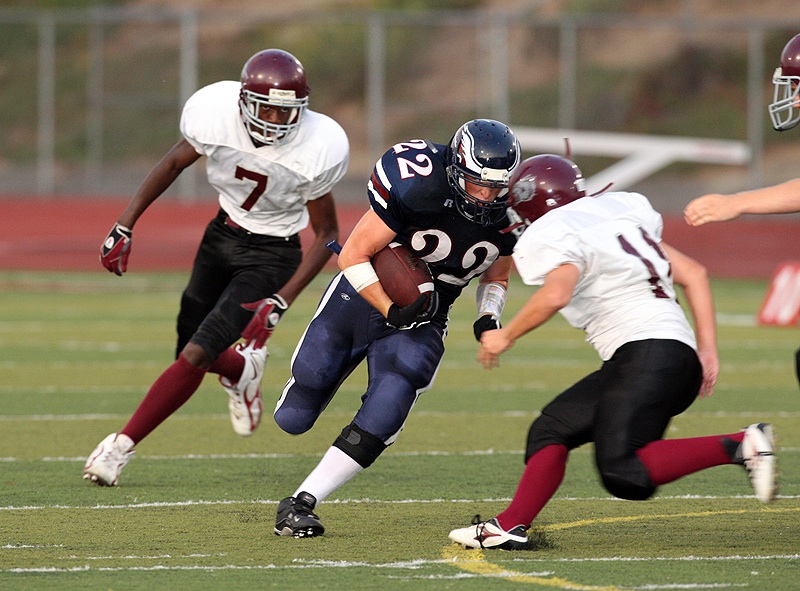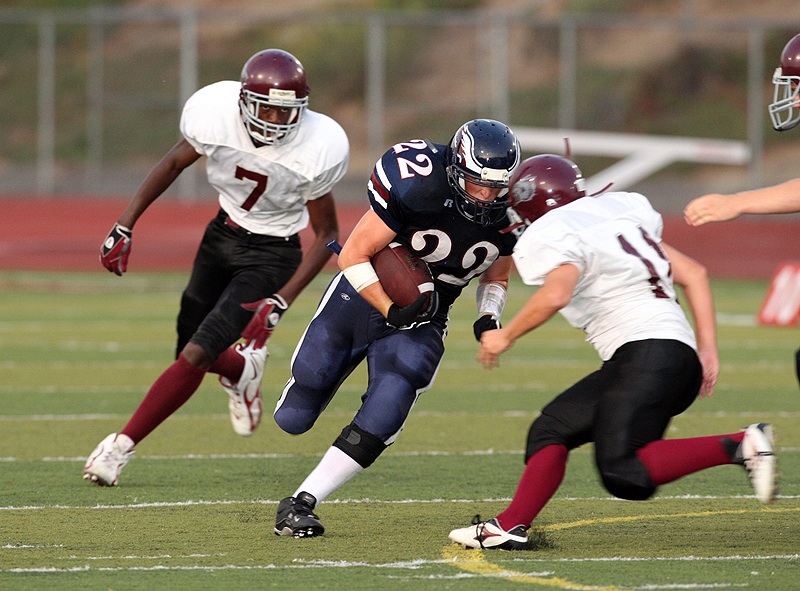
This is the first part in a series on The Importance of Self Confidence in Athletics. These are excerpts from a paper I wrote during my studies Masters in Athletic Administration and Coaching.
The MOST IMPORTANT thing I learned during this great program was about this topic – athletes having self confidence!
I hope that you learn something about helping your players play their best because of you helping them in this area of self confidence! (I will post the book references when this series is complete.)
WHAT SPORT PSYCHOLOGY HAS LEARNED ABOUT SELF CONFIDENCE
Both anecdotal and scientific evidence confirm that athletes who have a higher level of realistic self-confidence perform better than those who don’t. The more confident athletes are, the better they perform (Burton/Raedke 2008). But what is self confidence, we have seen what it can do for athletes, but what is it?
Self-confidence is power and comes from “know how,” which comes from experience, which comes from willingness to subject oneself to fearful experiences. (Bell, 1997). Power built from self-confidence is not anything that a coach can magically deliver to his team. It is something that must happen over time. Research has continually proven that confidence is one of the most important facets for team success.
The coaches evidently concur that confidence plays a central position in achieving success, because they regularly employ confidence-building techniques and feel that these strategies are effective in enhancing performance. (Jackson, Weinberg, Grove, 1992) For example, one study found that encouraging positive, as opposed to negative, self-talk was rated by coaches as being very effective and as being frequently used. (Jackson, Weinberg, Grove, 1992)
In addition to being recognized by coaches, the role that positive self-talk can have in enhancing performance has also received empirical support in sport psychology literature. (Jackson, 1992)
Mahoney and Avener (1977) found that the best predictor of qualification for the U.S. Olympic gymnastic team was the self-talk of the gymnast just prior to competition. The other techniques seen as most effective by Australian tennis coaches were liberally using rewarding statements, acting confident yourself, ensuring performance improvements through drilling and instruction, and verbally persuading players that they can do it. (Jackson, Weinberg, Grove, 1992)
Words are very powerful. Words from coaches are even more powerful. One of the most important tools that I have in my pocket next year for building self confidence is my tongue. The techniques of verbally persuading the player that he or she can do it and of liberally using rewarding statements are both types of verbal persuasion as described by Bandura (Jackson, Weinberg, Grove, 1992).
My football players must believe in themselves and this come first from knowing that their coaches believe in them. The belief that players have in their own abilities can be significantly bolstered by positive, encouraging comments from coaches. Research in sport psychology has indicated that the expectations and feedback of coaches can have an important impact on players’ confidence and on their subsequent performance.
Conversely, punishment and negative reinforcement from a coach can destroy a player’s confidence, especially if the player has low levels of self-worth and confidence already.
Bandura postulated four key determinants upon which athletes base their self-efficacy beliefs:
1. Performance accomplishments
2. Vicarious experience
3. Verbal persuasion
4. Emotional arousal.
According to Bandura’s (1986) self-efficacy theory, athletes with high self-efficacy are more likely to try harder and choose challenging tasks.
Consequently, individuals who are close to an ought or ideal self, and thus perceive themselves to have relatively high self-confidence, should outperform those who are far from an ought or ideal self, and thus perceive themselves to have relatively low levels of self-confidence. (Jackson, Weinberg, Grove, 1992).



